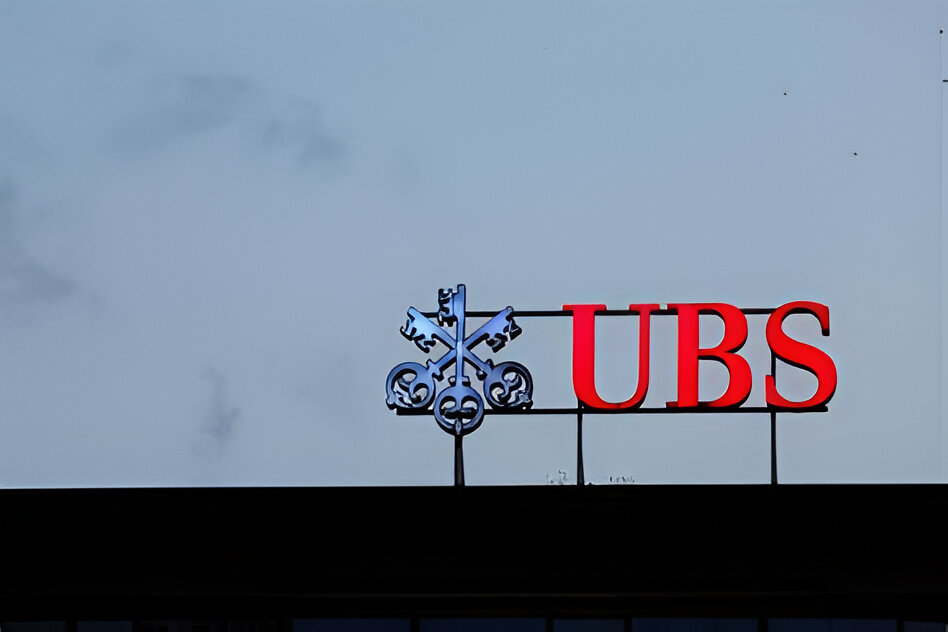ISLAMABAD, AUGUST 14: The biggest bank in Switzerland, UBS, easily outperformed analysts’ estimates on Wednesday when it revealed a $1.14 billion net profit for the April–June quarter, marking a new phase in the merger of its former competitor, Credit Suisse.
In a survey conducted by the business, experts projected a $528 million net profit attributable to shareholders. These were the bank’s first results after UBS and Credit Suisse finalized their official legal merger in May.
Premarket signals from bank Julius Baer indicated that UBS shares would climb at opening.
Last year, UBS purchased its longstanding rival in a rescue deal arranged by Swiss authorities following Credit Suisse’s collapse following a series of financial mishaps and scandals.
CEO of UBS Sergio Ermotti stated in a statement that the bank has achieved “significant progress” since finalizing the Credit Suisse acquisition, which was reflected in the first-half results.
“We are well positioned to meet our financial targets and return to the levels of profitability we delivered before being asked to step in and stabilise Credit Suisse,” he stated. “We are now entering the next phase of our integration, which will be critical to realise further substantial cost, capital, funding and tax benefits.”
In a research note, Deutsche Bank analysts stated that UBS’s investment bank and its non-core and legacy division were the primary drivers of the positive outcome, which included revenues and operational expenditures that above consensus forecasts.
“Furthermore, capital was a touch ahead, cost reductions are quicker-than-expected and net inflows were decent across Global Wealth Management but not in Asset Management,” they stated.
“Hence, UBS continues to deliver post Credit Suisse takeover but the uncertainty around capital (return) remains high.”
According to UBS, it has reached around 45% of its total annualized gross cost reduction goals, having saved an extra $0.9 billion in gross costs.
The bank has reduced non-core and legacy risk-weighted assets by 42% since the second quarter of last year, including an $8 billion decline quarter-on-quarter, it added.
GEOPOLITICAL TENSIONS
According to UBS, the next US elections, continuing wars, and geopolitical concerns cast a shadow over the macroeconomic picture. It anticipated that these uncertainties would continue to exist for some time to come and would probably cause more market volatility than it did in the first half of the year.
The bank reported that it was observing sustained strength in customer and transactional activity together with good investor sentiment.
Additionally, it saw mild headwinds in net interest income due to continuing changes in Global Wealth Management’s mix and the impact of the second rate decrease by the Swiss National Bank, which had not yet been included into UBS’s Personal & Corporate Banking deposit pricing.
The bank stated that it anticipated spending around $1.1 billion on integration-related costs in the third quarter and that the rate of gross cost reductions would decrease gradually over time. It stated that the approximately $0.6 billion accretion of purchase accounting benefits should somewhat offset integration-related costs.
UBS reported a nearly $29 billion profit during the second quarter of last year due to a huge one-off gain reflecting how the acquisition costs were far below Credit Suisse’s value.
Swiss authorities oversaw the first merger of two global systemically important banks – as designated by the Financial Stability Board – in the first half of last year. After that, UBS posted two consecutive quarters of losses due to the cost of absorbing its rival.
Investors warmed to the takeover, by this summer pushing up the value of UBS’s shares by more than two-thirds since it bought Credit Suisse in March 2023. However, UBS shares have since lost ground during recent turmoil in global markets.
Analysts are watching UBS’s absorption of Credit Suisse closely, and Ermotti said in May any delay to the technological integration of the two banks could erode planned cost savings.In an effort to prevent a catastrophe similar to the Credit Suisse crisis, markets are also keeping an eye on how Swiss authorities go with their efforts to strengthen banking regulations.
In April, the Swiss government unveiled a series of “too big to fail” plans that outlined UBS’s need to retain more capital to protect itself against potential disasters.
The actual amount is yet unknown, despite the Swiss Finance Minister’s suggestion that it may be anywhere from $15 billion to $25 billion. UBS has expressed “serious” concerns over the higher capital needs.









